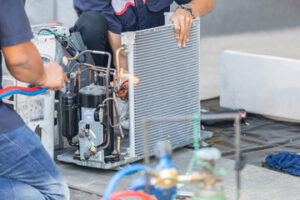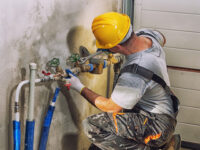Preventative Maintenance Tips For Your HVAC System
Regular maintenance of your HVAC system is vital to keeping it operating at peak performance. However, since you rarely see your HVAC system, it is easy to neglect it. Just like you would change the oil in your car or tune it up when you notice the check engine light on, it is important to perform preventative maintenance on your HVAC system to keep it in top condition.

Check the refrigerant lines. Properly charged refrigerant lines ensure proper cooling. When refrigerant lines become disconnected, leaks may develop. Therefore, it is advisable to check these lines regularly, especially in the winter months. Moreover, keep your HVAC system level and make sure it is not tilted. Check for these signs and seek help. If you have HVAC systems on pads, make sure that they are leveled and not tilted.
Make sure to schedule regular maintenance. Having your HVAC system professionally maintained will lower the number of repairs and increase its efficiency. HVAC systems tend to wear out over time, and neglected units can cause drastic increases in energy bills. But regular maintenance will ensure that your HVAC system is in top working condition and won’t cost you an arm and a leg. And it will also use less fuel – another important factor in reducing your monthly expenses. Therefore, you should not delay professional maintenance unless you absolutely have to.
Preventive maintenance. By performing regular maintenance on your HVAC, you can reduce your energy bills by 30%. Regular maintenance will also ensure that your HVAC system will last longer. A properly maintained HVAC system will not need repairs and will keep your home comfortable no matter the weather outside. There is no need to wait until your HVAC system breaks down to notice a problem. Instead, you should check it before winter or summer to ensure that it is in top working condition.
Regular maintenance is necessary to keep your HVAC running as efficiently as possible. Regular inspections and cleanings of moving parts can prevent friction and excessive heating. These parts can wear out quickly without regular maintenance, leading to expensive repairs and a broken unit. During these inspections, the components of your HVAC system should be cleaned and lubricated. In addition, your HVAC system should be cleaned regularly to remove any debris that might have accumulated over time.
The indoor air quality of your home can affect your health. Poor air quality results from stale and humid conditions. The ventilating part of your HVAC system controls moisture levels, removes unpleasant smells, and keeps air from stagnating. By regulating the humidity, your HVAC system will help you maintain your home’s comfort level. In addition, you will be able to relax and focus on your work while your system keeps the temperature within your home comfortable.
A furnace has a central chamber called a heat exchanger. The hot air inside the furnace travels through the heat exchanger, which then gives the heat to the air passing over it. The heat then leaves the exchanger as an exhaust. It is crucial to ensure that your heat exchanger is clean, as dirty heat exchangers can lead to toxic emissions. You should also check your furnace filters to ensure that they do not cause harm. Finally, it is important to check your furnace regularly, because it can clog up and cause other parts of your HVAC system to break down faster than they should.
An HVAC system is a complex machine that uses a series of components to move air and provide warmth or coolness to an indoor environment. Its primary components include ventilation, heating, air conditioning, and air filtering. The ventilation component of an HVAC system removes odors from the air and provides optimal indoor air quality. Another essential part of the system is a thermostat. The thermostat regulates the temperature inside the building and triggers the system to work when the weather is too hot or too cold.
The air filter in your HVAC system must be changed at least once a month. While this may seem expensive, it can reduce energy bills and help you save money on utilities. You should also check the air filters regularly for signs of dirt or other contaminants. Changing air filters on a monthly basis can help keep your system working properly and prevent allergy symptoms. If you have pets, it is essential to replace the filter more often than once a month.






